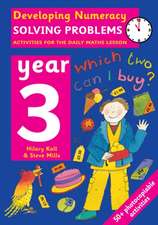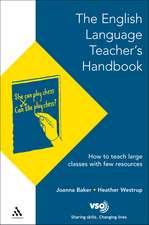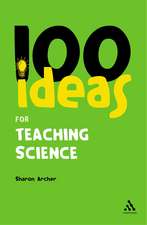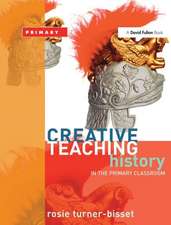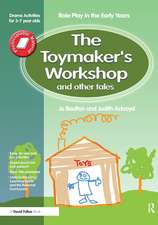Acquisition of Complex Arithmetic Skills and Higher-Order Mathematics Concepts: Mathematical Cognition and Learning (Print), cartea 3
Editat de David C. Geary, Daniel B. Berch, Robert Ochsendorf, Kathleen Mann Koepkeen Limba Engleză Hardback – 21 dec 2016
- Covers innovative measures and recent methodological advances in mathematical thinking and learning
- Contains contributions that improve instruction and education in these domains
- Informs policy aimed at increasing the level of mathematical proficiency in the general public
Preț: 438.71 lei
Preț vechi: 476.86 lei
-8% Nou
Puncte Express: 658
Preț estimativ în valută:
83.95€ • 89.77$ • 69.99£
83.95€ • 89.77$ • 69.99£
Carte tipărită la comandă
Livrare economică 10-24 aprilie
Preluare comenzi: 021 569.72.76
Specificații
ISBN-13: 9780128050866
ISBN-10: 0128050861
Pagini: 360
Dimensiuni: 152 x 229 x 25 mm
Greutate: 0.65 kg
Editura: ELSEVIER SCIENCE
Seria Mathematical Cognition and Learning (Print)
ISBN-10: 0128050861
Pagini: 360
Dimensiuni: 152 x 229 x 25 mm
Greutate: 0.65 kg
Editura: ELSEVIER SCIENCE
Seria Mathematical Cognition and Learning (Print)
Cuprins
1. Cognitive Processes Contributing to Mathematical Performance in Children with Neurological Disorders: Implications for Typical and Atypical Mathematical Development2. Using Cognitive Science to Develop Innovative Approaches to Improving Fractions Instruction for Students with Mathematics Difficulties3. Children’s Conceptual Understanding of Multiplication and Division4. Developmental Changes in the Influences of Domain-General Capabilities and Domain-Specific Skills in Learning Algebra5. Understanding and Alleviating Children's Difficulties with Mathematical Equivalence6. Emergence of Trigonometric Abilities from Experience in Distributed Neural Networks7. Facilitating Conceptual and Procedural Learning in Algebra8. The Power of Comparison in Learning and Instruction: Experimental Evidence from Mathematics Classrooms9. The Transition from Natural to Rational Number Knowledge10. The Solving of Arithmetical Word Problems11. The Development of Competence in Complex Arithmetic12. The Solving of Algebra Problems






